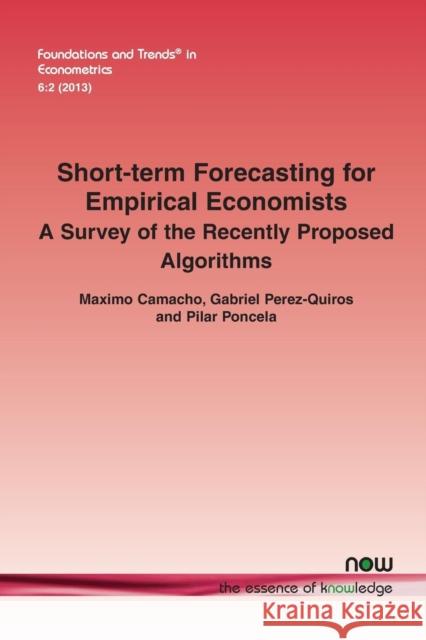Short-Term Forecasting for Empirical Economists: A Survey of the Recently Proposed Algorithms » książka
Short-Term Forecasting for Empirical Economists: A Survey of the Recently Proposed Algorithms
ISBN-13: 9781601987426 / Angielski / Miękka / 2013 / 74 str.
The economic shocks brought about by the Great Recession triggered drastic reactions by policy makers and private agents alike. Such dramatic economic consequences have lead economics agents to acknowledge the need for new tools to monitor economic developments in real time, and learn early detection methods to foresee downturns and recoveries. Short-term Forecasting for Empirical Economists seeks to close the gap between research and applied short-term forecasting. The authors review some of the key theoretical results and empirical findings in the recent literature on short-term forecasting, and translate these findings into economically meaningful techniques to facilitate their widespread application to compute short-term forecasts in economics, and to monitor the ongoing business cycle developments in real time. Short-term Forecasting for Empirical Economists is divided into five sections. Section 1 outlines what forecasting frameworks are surveyed and why. Section 2 introduces the notation and main characteristics of the data for short term forecasting. Section 3 reviews the main models used for this purpose and addresses the role of the number of series in factor models. Section 4 illustrates the forecasting performance of the different models reviewed in Section 3 through an empirical application. Finally, Section 5 reviews the main results and proposes some lines for further research.











